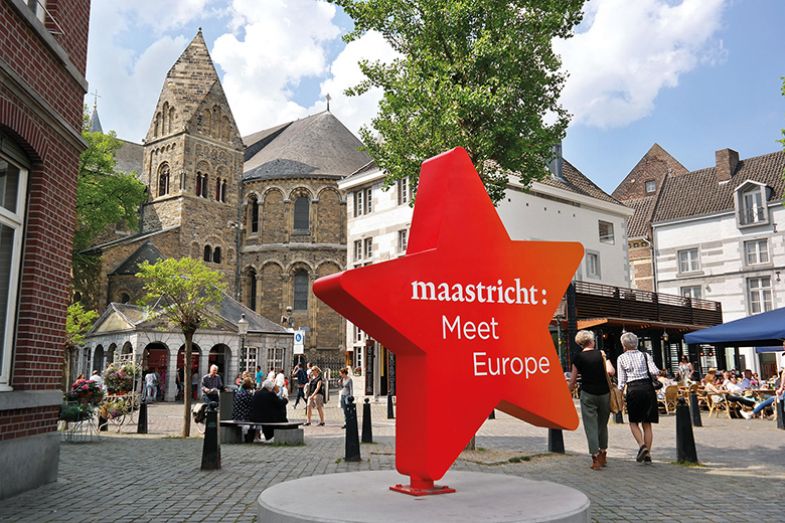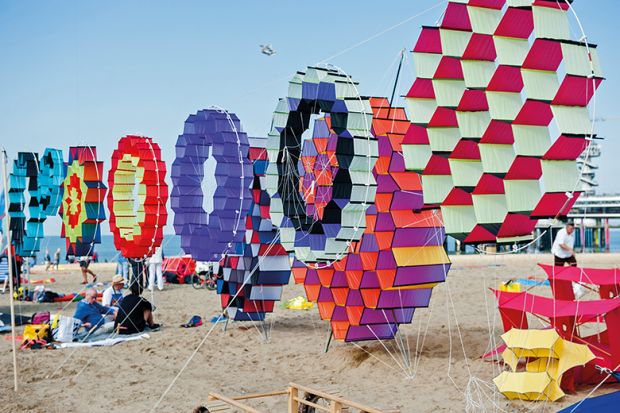Science by nature pushes boundaries and crosses borders. In considering the future of internationalisation in higher education in an increasingly global environment, the question can never be whether we should continue to internationalise. As the Organisation for Economic Cooperation and Development (OECD) puts it: “Higher education drives, and is driven by, globalisation.”
Does this mean that the internationalisation of universities develops automatically and therefore requires no further attention? By no means. Given their task to provide high-quality education, groundbreaking research and impactful services, academic institutions are obliged to adopt a responsible guiding role. As I see it, adopting this role, particularly in view of the major societal issues we face as a global community, will be our greatest challenge in the coming years.
This means that our internationalisation policy should focus on an ideal: global education for all, to enable as many people as possible to experience the richness of diverse perspectives offered by higher education. We owe it to society to keep explaining that while internationalisation policy may be costly for various parties in the short term, it is beneficial to everyone in the long term.
However, various preconditions must also be met. Maastricht University proudly presents itself, for good reason, as the European university of the Netherlands. Internationalisation is a fundamental element of our strategy, courses and success. It is omnipresent on our campus. This fulfils one of the necessary preconditions for internationalisation: a comprehensive approach. The choice to make the university fully bilingual also helps.
Another precondition is that internationalisation should be intrinsically motivated, rather than arising purely from the search for a revenue model. With 80 per cent of its immediate surroundings lying in two foreign countries, internationalisation at Maastricht has evolved since the 1990s as a matter of course.
Applying the maxim “think globally, act locally”, European norms and values guide our actions. Connected to our dominant European academic community, our Europe-oriented teaching and research and our European institutes and programmes, Europe above all represents for us an openness to listen and learn from others. This is important when it comes to developing our region, contributing to the Netherlands and working in collaborations of equals with partners worldwide on the major challenges that have been set out in the United Nation’s Sustainable Development Goals.
It is also logical that we should play a pioneering role within Europe in collaboration among academic institutions and their associates. Decades ago, Maastricht University established the transnational University of Limburg, an institutionalised initiative with degree programmes and research operating jointly with a partner university in the Meuse-Rhine Euregion. A more recent initiative is YUFE (Young Universities for the Future of Europe), a European-scale, European Union-supported partnership comprising 10 universities and five non-academic institutions with the aim of developing the European university of the future, enabling students to obtain a European degree.
YUFE has the explicit objective of adopting an accessible and non-elitist approach; by connecting the programmes of the participating universities both online and offline, students, staff and, in the long term, also citizens will also be able to gain international experience. This openness may be regarded as a precondition for a responsible internationalisation process aimed ultimately at creating an environment for global education that is accessible to everyone.
Without wishing to claim completeness, I would like to dispel the common feeling that student and staff travel is another precondition for internationalisation. Maastricht University has long been focusing not only on inbound and outbound mobility, but also on a process of internationalisation at home. After more than 30 years of plotting an international course, we have succeeded in attracting a highly diverse population of students and staff in terms of nationality. This means that our students already participate in a genuinely international classroom on the majority of our programmes. This gives them the opportunity to work on their intercultural competences and become global citizens within our own region.
There are also catalysts for internationalisation. Consider the rapid developments in technology-enhanced education that have taken place under the influence of the pandemic. The ever-growing global demand for higher education is a stimulating factor. The more accessible our education becomes, the more talent is made available for regions worldwide to work on increasing prosperity and well-being. Here the keyword is impact. Of course, our task is also fostered by a global labour market that expressly demands young talent with the ability to navigate an internationally interwoven society. It is also interesting that in the field of student mobility we are observing a global shift to the east. This part of the world is therefore also opening up.

With so much pointing in the direction of the globalisation of higher education, does this mean it will be an easy process? Far from it. There are still many issues to be resolved, ranging from practical obstacles to complex issues of knowledge security and ideological dilemmas about whether it is appropriate to cooperate with a particular regime or institution. I believe we should be openly discussing these issues more frequently. We should be able to justify why we work with all our partner institutions, without being presumptuous or one-sidedly reflecting only our own Western-dominated value system.
I return to Maastricht. Internally, inclusiveness and diversity are high on our agenda, but we still have a way to go. Do all groups feel welcome and at ease here? How diverse is our university if we look beyond nationality? Are we admitting enough first-generation students, migrants and refugees? And what about gender accessibility? Are we as oriented towards listening and dialogue as we like to believe, or are we still thinking from the perspective of the superiority of the Old World? And to what extent do we dare to shift our focus away from excellence? For the sake of preserving reputations, will we continue to be guided by rankings that lead to a rat race, rather than focusing on societal impact? All these questions have yet to be answered.
It is up to us to tackle these internal obstacles ourselves. Unfortunately, however, we cannot remove external hurdles through our own initiatives. Numerous factors obstruct the route towards international cooperation and solidarity. What consequences will the Ukraine crisis have, and to what extent is nationalistically oriented populism an impediment? Are nation states prepared to invest in international solidarity and cooperation? Do they dare to remove barriers that hinder mobility and knowledge-sharing? What will be the effect of the current discussion on knowledge security? Protectiveness would seem an obvious response, yet health issues, security considerations and climate change require broad cooperation. And under what conditions can we cooperate with institutions in countries with regimes that do not share our norms and values?
As an optimistic person by nature, I say let’s roll up our sleeves and get to work. Externally, showing an understanding for our society, we will have to repeat and substantiate our argument time and again. Internally, we have taken the right path, and we are following it step by step. I look forward to future discussions on the formulation of an appropriate global engagement policy and our next steps to towards enabling barrier-free European education. All these will bring us closer to our goal: global education for all.
Rianne Letschert is president of Maastricht University.
后记
Print headline: A global education for all is our goal






